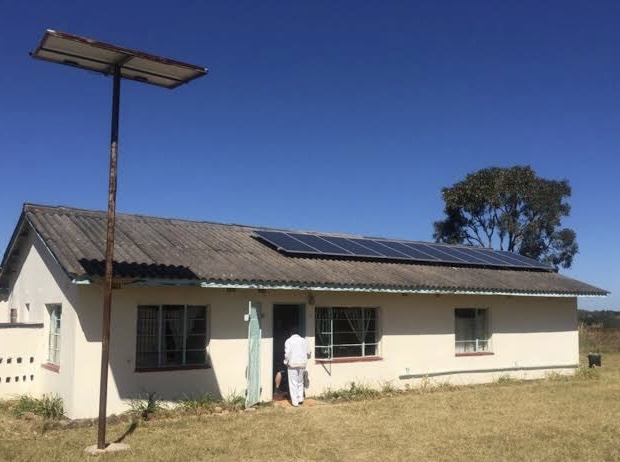KEY POINTS
- Over 1,000 rural facilities in Zimbabwe are now electrified.
- Healthcare centres can store medicines safely and operate more efficiently.
- The project supports Zimbabwe’s goal of universal energy access by 2030.
Schools, clinics, business centres, communities, farms, and chiefs’ homesteads are among the more than 1,000 rural institutions in Zimbabwe’s Midlands Province that now have power.
Over 1,000 rural institutions connected to power in Midlands Province
Owen Ncube, the Midlands Province’s Minister of State for Provincial Affairs and Devolution, made this announcement at the Gweru Provincial Hospital LED Retrofit Project’s opening.
The occasion, held at Gatawa Clinic in Lower Gweru and organised by the Zimbabwe Energy Regulatory Authority (ZERA), is a component of a project to provide power to isolated regions. The project’s main goals are to increase infrastructure, especially in healthcare facilities, by introducing alternative energy technologies and increasing energy efficiency.
Ncube underlined that the program provides rural healthcare institutions, particularly patients and healthcare personnel, with a great deal of respite. He declared, “This project marks the end of using candles and torches during the night when attending to patients.” He also mentioned that the safe storage of necessary medications, including vaccinations, in refrigerators will be made possible by the availability of power.
Energy efficiency in rural areas aligns with Zimbabwe’s 2030 modernization goals
To draw and keep qualified employees, the program also seeks to enhance working conditions in rural healthcare facilities. Ncube emphasised that the program is in line with the Second Republic’s overarching modernisation and industrialisation plan, which aims to make Zimbabwe an upper-middle-income nation by 2030, as President Emmerson Mnangagwa had envisioned, according to ESI Africa.
Ncube stated, “This program aligns with our vision of providing high-quality healthcare services to all communities, modernising healthcare facilities, and industrialising rural areas.” He emphasised that the government’s pledge to provide sustainable energy to all people by 2030 is a component of a broader development plan meant to improve livelihoods and spur economic expansion.
Ncube also commended ZERA for decentralising to the Midlands Province, which guarantees the prompt resolution of the area’s energy problems. “Reducing electricity imports, lowering energy bills, and cutting carbon emissions all depend on promoting energy efficiency and putting projects like the one we are launching today into action,” he stated.



